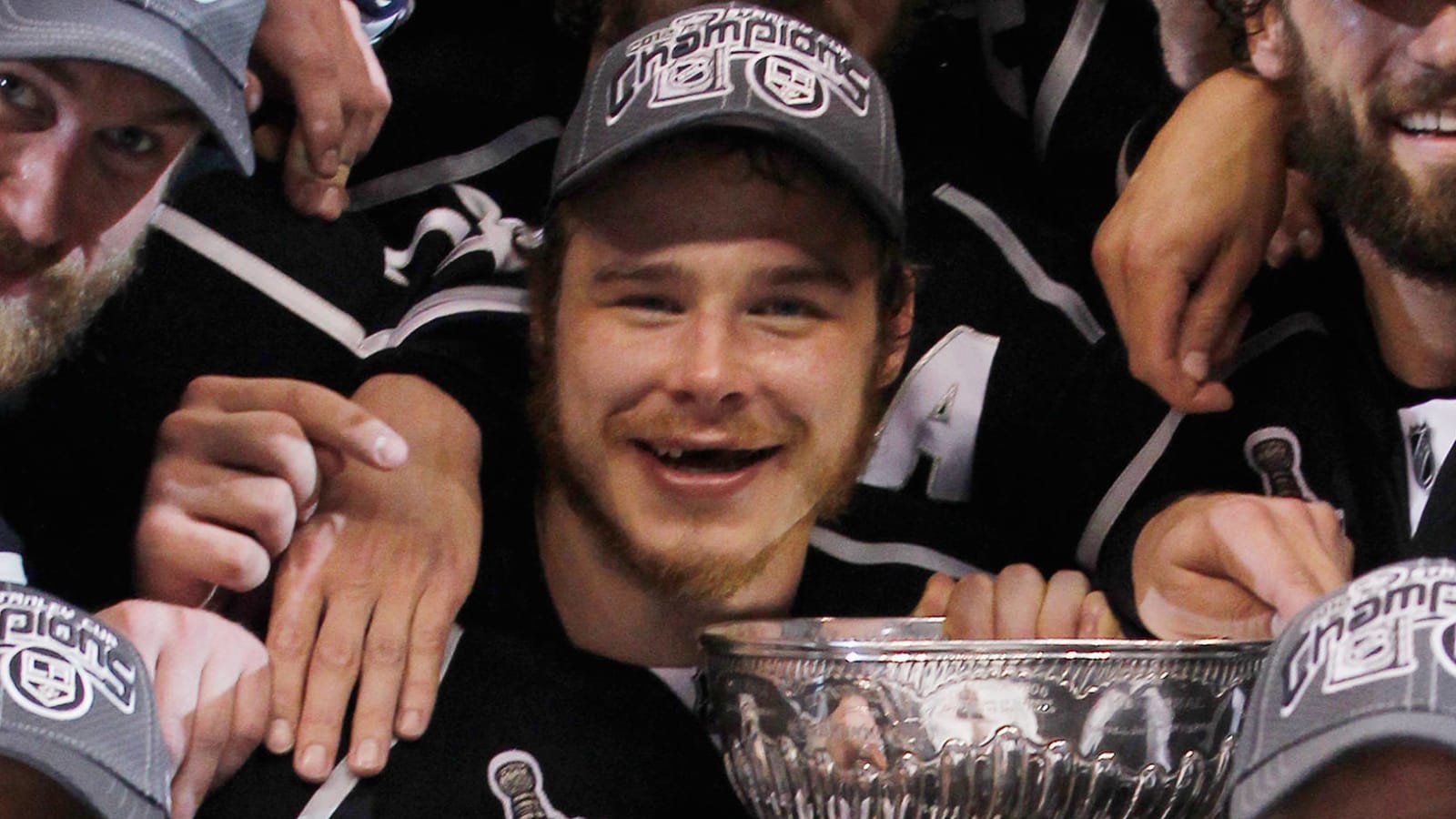
The eight most surprising teams to make the Stanley Cup Final
After dominating the Western Conference playoffs, the Vegas Golden Knights, a first-year expansion team, are getting ready to play in the Stanley Cup Final against Alex Ovechkin and the Washington Capitals.
It has been, to say the least, a stunning season by Vegas that has taken the entire NHL and sports world by surprise. Nobody expected this team to even get close to the playoffs, let alone win the Pacific Division and then go on a 12-3 run through its first 15 playoff games. It is one of the most stunning playoff runs in NHL history.
This is the second time in the modern NHL era a first-year team will play for the Stanley Cup as the Golden Knights join the 1967-68 St. Louis Blues. The circumstances around the Blues, however, were a little different. In that season the NHL doubled in size, going from six teams to 12. Because all six expansion teams (Pittsburgh Penguins, Philadelphia Flyers, Los Angeles Kings, Minnesota North Stars, California Golden Seals, St. Louis Blues) played in their own conference, it was a guarantee that one of them was going to make it. The Vegas circumstances are, obviously, a little different. The Golden Knights joined what was already a 30-team league and had to exceed every possible expectation to get here.
It is one of the most improbable runs to the Stanley Cup Final in NHL history. With that in mind, let us take a look at a few more. Almost all of these playoff runs resulted in a Stanley Cup Final defeat, but that does not make them any less remarkable.
To the list!
2011-12 Los Angeles Kings
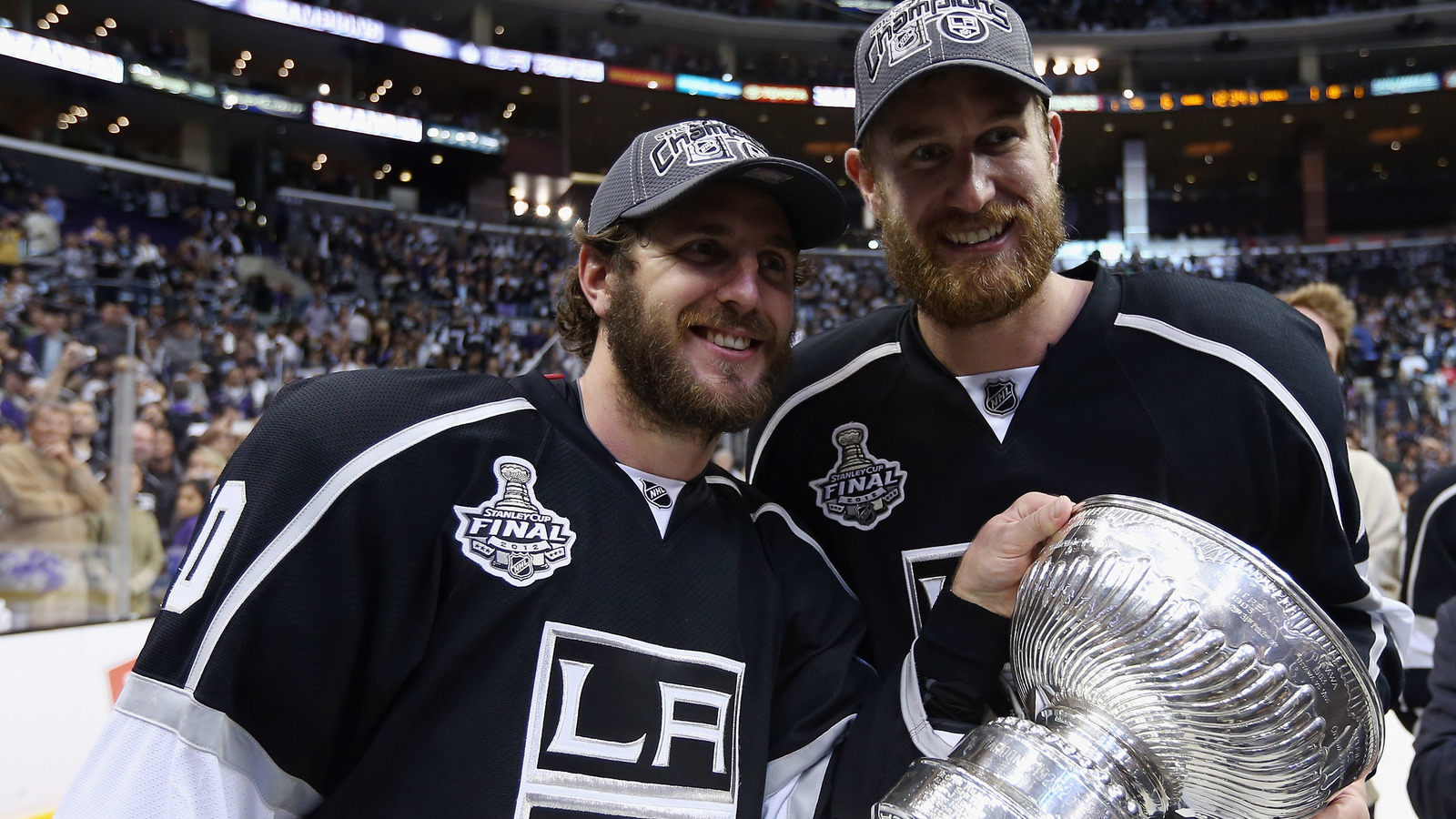
This is a team that was probably a lot better than its record, but the fact remains it was the No. 8 seed in the Western Conference, finished the season 29th out of 30 teams in goals scored and actually had three different head coaches during the regular season. After Terry Murray was fired 29 games into the year, John Stevens (who is currently the Kings' coach) stepped behind the bench for four games until Darryl Sutter took over. Sutter's arrival, as well as the trade for Jeff Carter, helped spark a second-half run that saw the Kings surge into a playoff spot and then roll through the playoffs.
It is not just that they reached the Stanley Cup Final and then won it as a No. 8 seed that was so stunning. It's that it only took them 20 playoff games to do it. The Kings beat the Presidents' Trophy-winning and reigning Western Conference champion Vancouver Canucks in five games, swept the St. Louis Blues in four games, beat a surprising Arizona Coyotes team in five games and then beat the New Jersey Devils in six games.
2009-10 Philadelphia Flyers
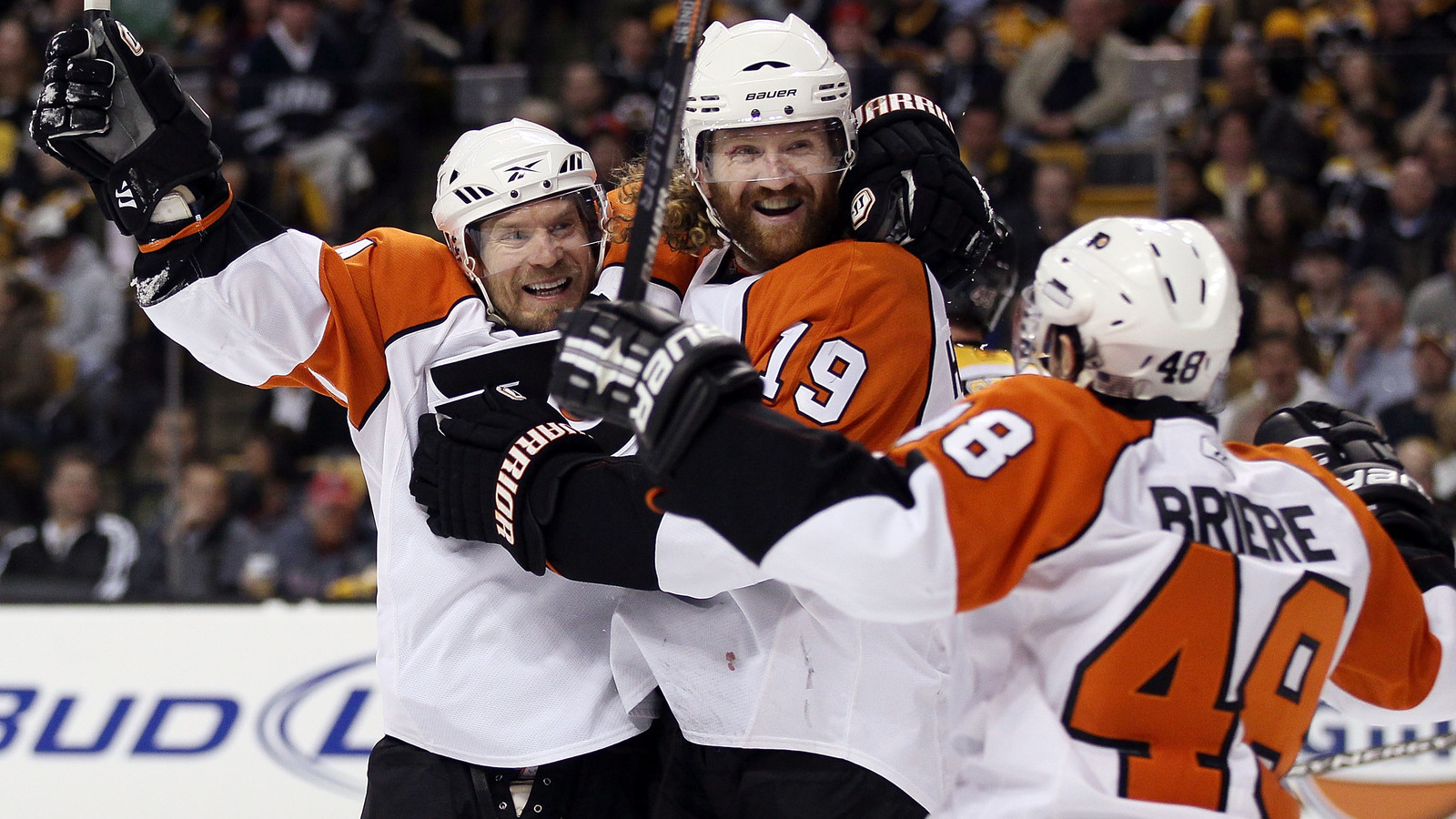
This was an incredible run. The Flyers sneaked into the playoffs on the last day of the regular season by defeating the New York Rangers in a shootout. Once they got into the playoffs, they had to overcome the fact they had no No. 1 goalie and were using a platoon of Brian Boucher and Michael Leighton.
On their run to the Stanley Cup Final, they had to beat the No. 2 seed New Jersey Devils (a 103-point team), overcome a 3-0 series deficit in the second round against the Boston Bruins, and then beat a cinderella Montreal Canadiens team that had knocked off the Presidents' Trophy-winning Washington Capitals and defending Stanley Cup champion Pittsburgh Penguins.
The Flyers made it into the Stanley Cup Final but came up short against the Chicago Blackhawks, who had ended the organization's lengthy Stanley Cup drought on Patrick Kane's overtime goal in Game 6.
2005-06 Edmonton Oilers
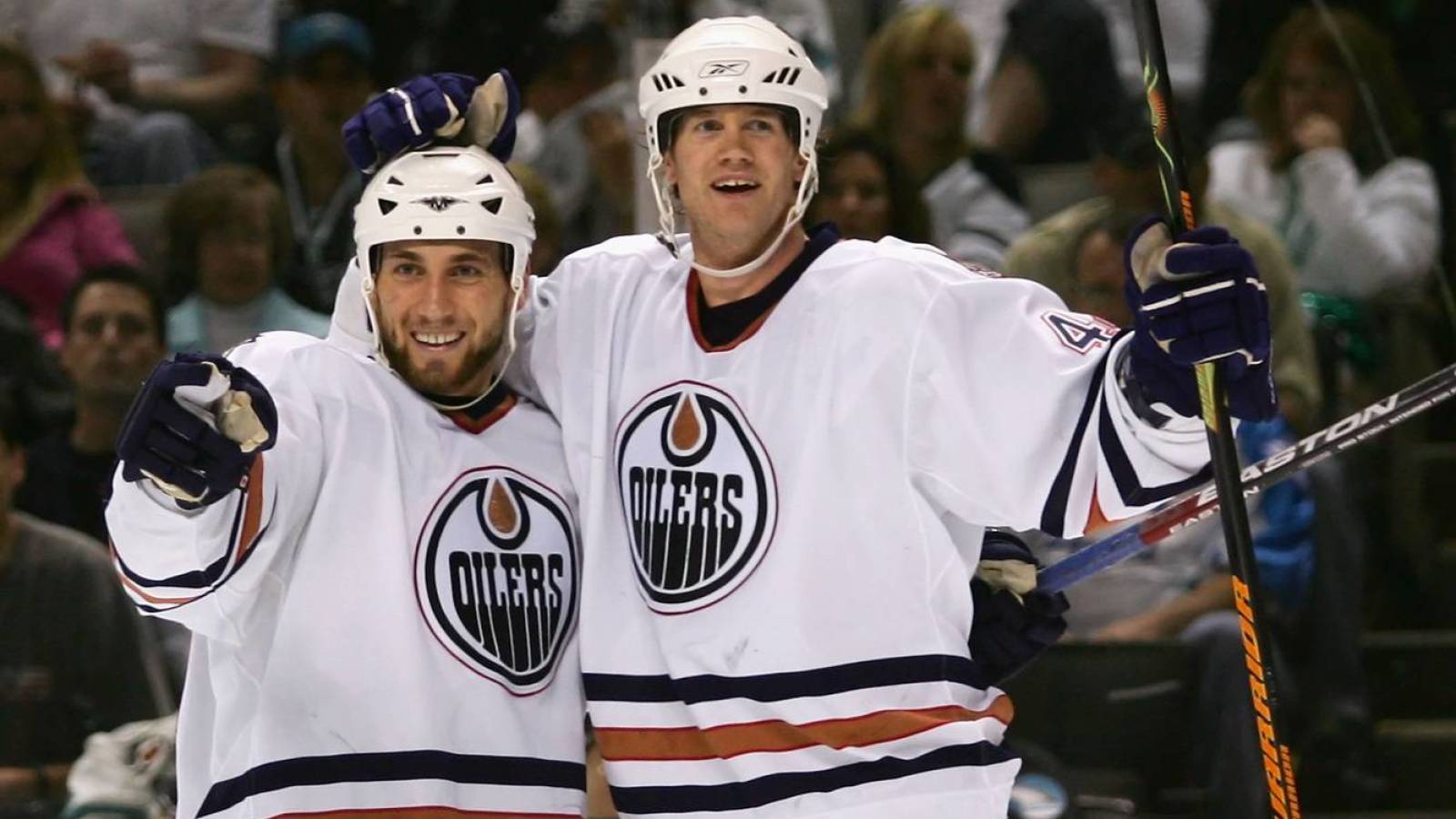
This was a surprising run not only because they were the No. 8 seed that season, but also surprising considering what the Oilers became immediately after this run. Coming out of the 2004-05 NHL lockout, the Oilers were able to load up their roster by acquiring Chris Pronger and shutdown center Mike Peca. Pronger's ability to play half of every game and turn whatever team he played for into an immediate Stanley Cup contender was the driving factor in the Oilers' run to the Final.
The highlight of this run might have been the first-round series win against a 124-point Red Wings, eliminating them in six games. Their run came to an end in a Game 7 loss in the Stanley Cup Final to the Carolina Hurricanes. This series might have had a different result had it not been for Ty Conklin's unfortunate blunder behind the net in Game 1. He only played five minutes all postseason and allowed just one goal, but it was ... well ... it was a big goal.
2002-03 Anaheim Ducks
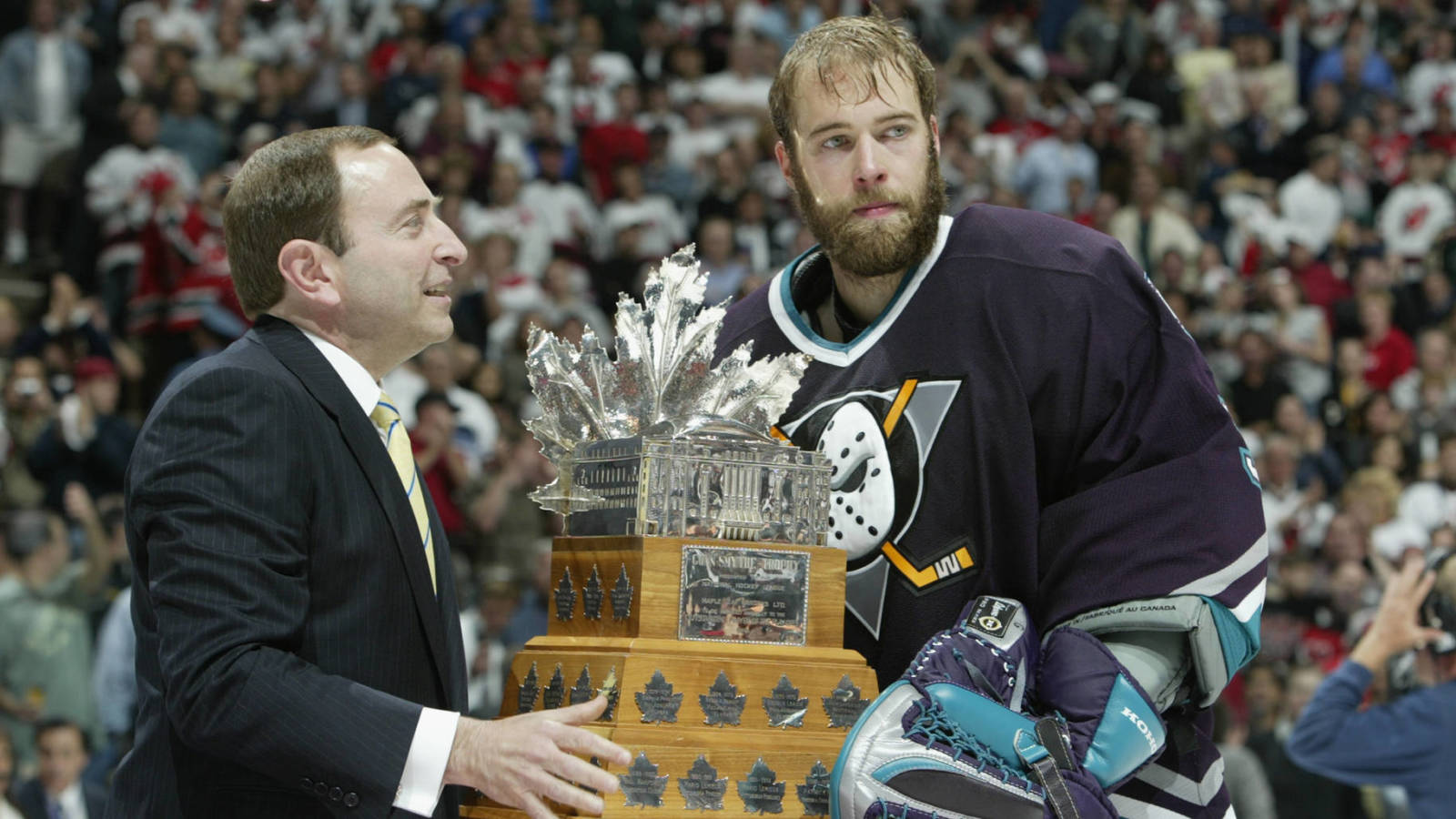
This was the run that was powered by Jean-Sebastien Giguere's historic run in goal and a prime example of how much of an impact goaltending can make on a team in the Stanley Cup Playoffs. Giguere played out of his mind in the postseason, finishing with a .945 save percentage and recording five shutouts. Three of those shutouts came in the Western Conference Final when he blanked the Minnesota Wild in the first three games of the series, then only allowed one goal in the clinching win in Game 4.
He ended up winning the Conn Smythe Trophy as playoff MVP even though the Ducks lost Game 7 of the Stanley Cup Final to the New Jersey Devils.
1998-99 Buffalo Sabres
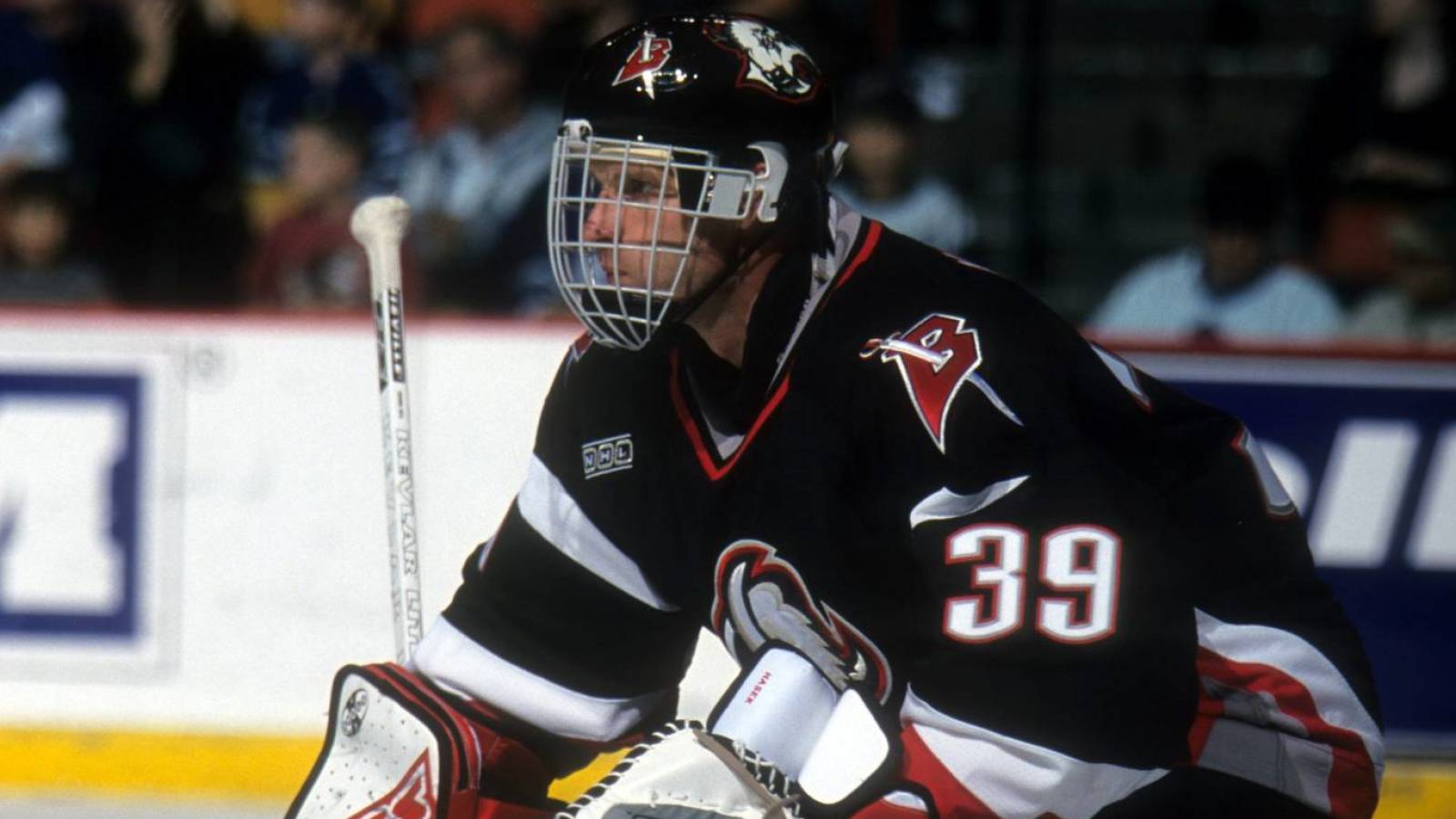
The late 1990s Buffalo Sabres are a fascinating franchise to look back on. The rosters were never anything special, but they always seemed to have a chance and make a little bit of noise in the playoffs. The reason: They had Dominik Hasek, who was in the middle of a run that saw him lead the league in save percentage six years in a row, winning the Vezina Trophy as the league's top goalie in five of those years — the only year he didn't win he somehow came in eighth place, losing out on the award to Washington Capitals goalie Jim Carey, of all people.
Hasek's run never resulted in the Sabres winning a Stanley Cup, but it did get them closer than the roster had any right to be, with its closest miss coming during the 1998-99 season when they reached the Stanley Cup Final. That was the year Brett Hull beat them in overtime of Game 6 with his infamous skate in the crease goal.
1995-96 Florida Panthers
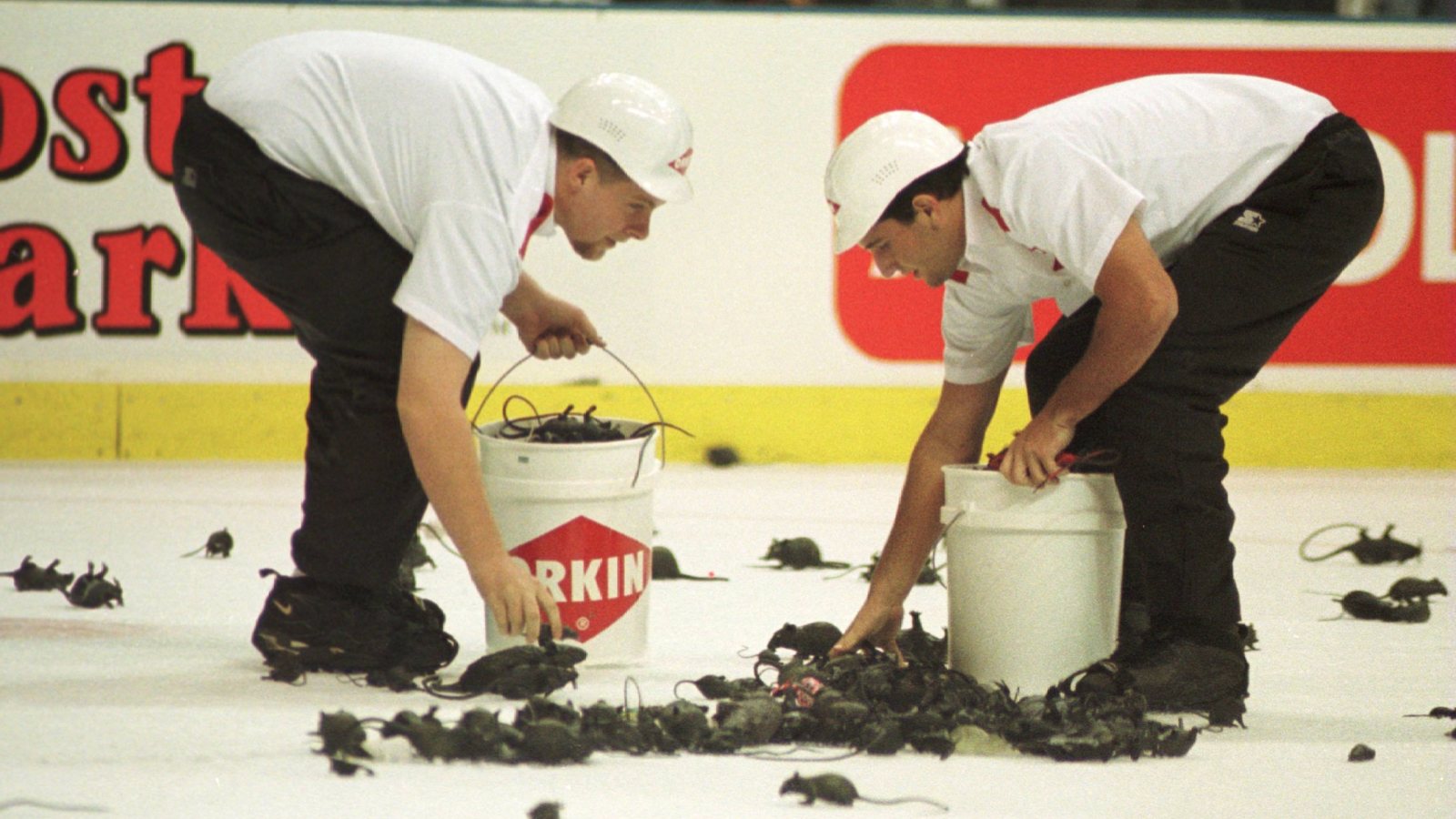
The year of the rat. The 1995-96 Panthers were a third-year expansion team that was short on talent but made up for it by getting an outstanding goaltending performance from a veteran goalie in John Vanbiesbrouck. They also played a brutally boring clutch-and-grab brand of hockey that helped slow down superior teams, which they played to perfection in eliminating the Legion of Doom Philadelphia Flyers and a dynamic Pittsburgh Penguins team that had a top line of Mario Lemieux, Jaromir Jagr and Ron Francis in the Eastern Conference Final (though Francis did not play in that series due to injury, a fact that no doubt helped the Panthers win in seven games).
They clinched their spot in the Final with a Game 7 upset over Pittsburgh that included a long-range goal from Tom Fitzgerald in the third period to break a 1-1 tie.
This team was famous for the fact the fans would cover the ice with plastic rats after every goal, a tradition that started when captain Scott Mellanby killed a rat in the team's locker room earlier in the season with his hockey stick, then scored two goals with that same stick. Florida's luck ran out in the Stanley Cup Final, where the Panthers were swept by the Colorado Avalanche.
1990-91 Minnesota North Stars
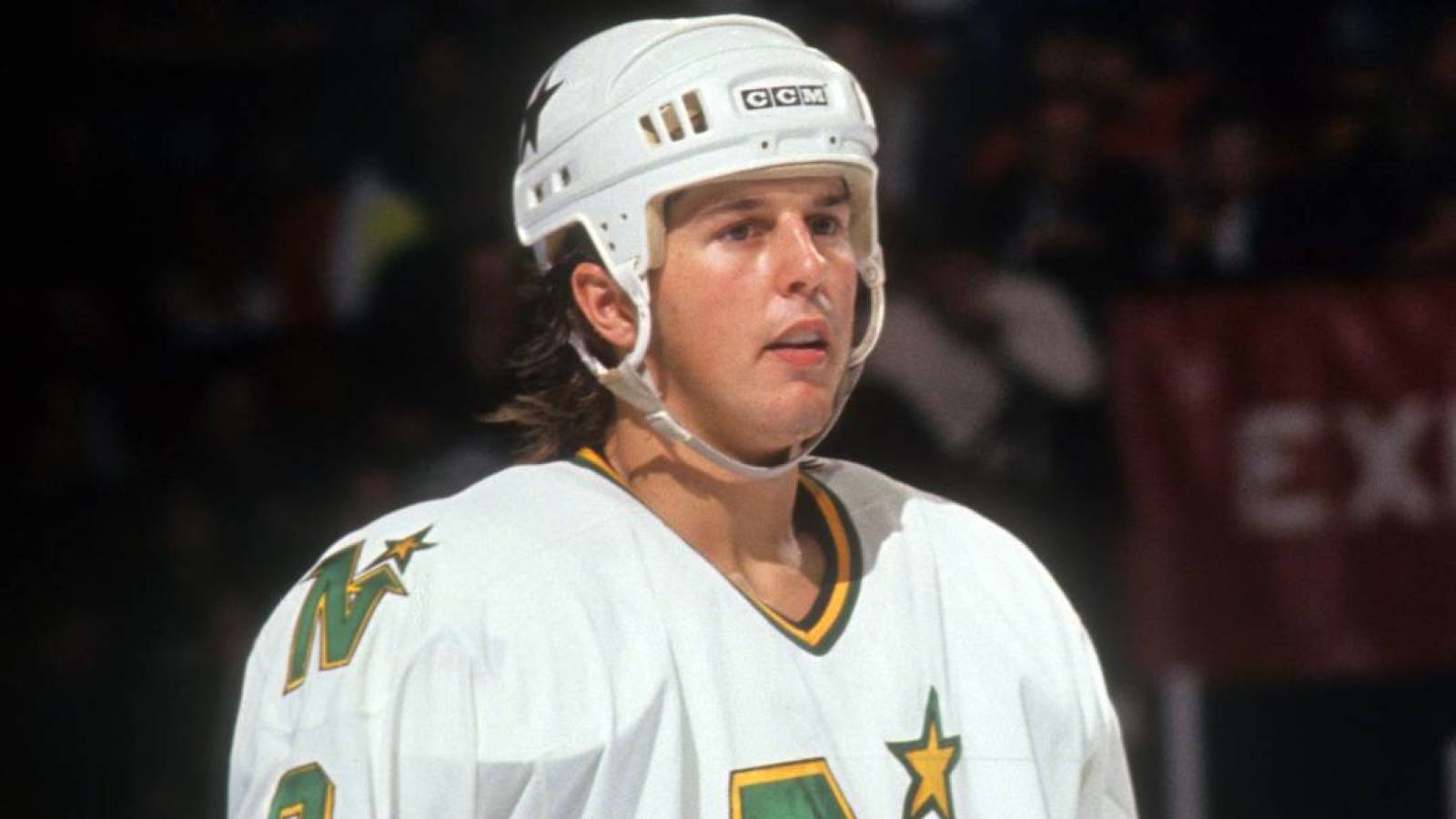
This might have been the worst team to ever reach the Stanley Cup Final, and that is not hyperbole. This team stunk. The North Stars won 27 out of 82 games in the regular season but got into the playoffs due to the NHL's divisional playoff format (it also helped that 16 out of 21 teams in the league made the playoffs), snagging the fourth and final playoff spot in the Norris Division.
This was an example of a "team getting hot at the right time." The Stars finished the regular season on a nine-game unbeaten streak (6-0-3). Once they got in the playoffs it was a stunning run that saw them knock off a pair of 105-point teams in the first two rounds (Chicago Blackhawks and St. Louis Blues) and then beat the defending Stanley Cup champion Edmonton Oilers in the Campbell Conference Final. They even took a 2-1 series lead in the Stanley Cup Final before Mario Lemieux and the Pittsburgh Penguins took over and won in six games, including an 8-0 rout in the clinching Game 6.
1981-82 Vancouver Canucks
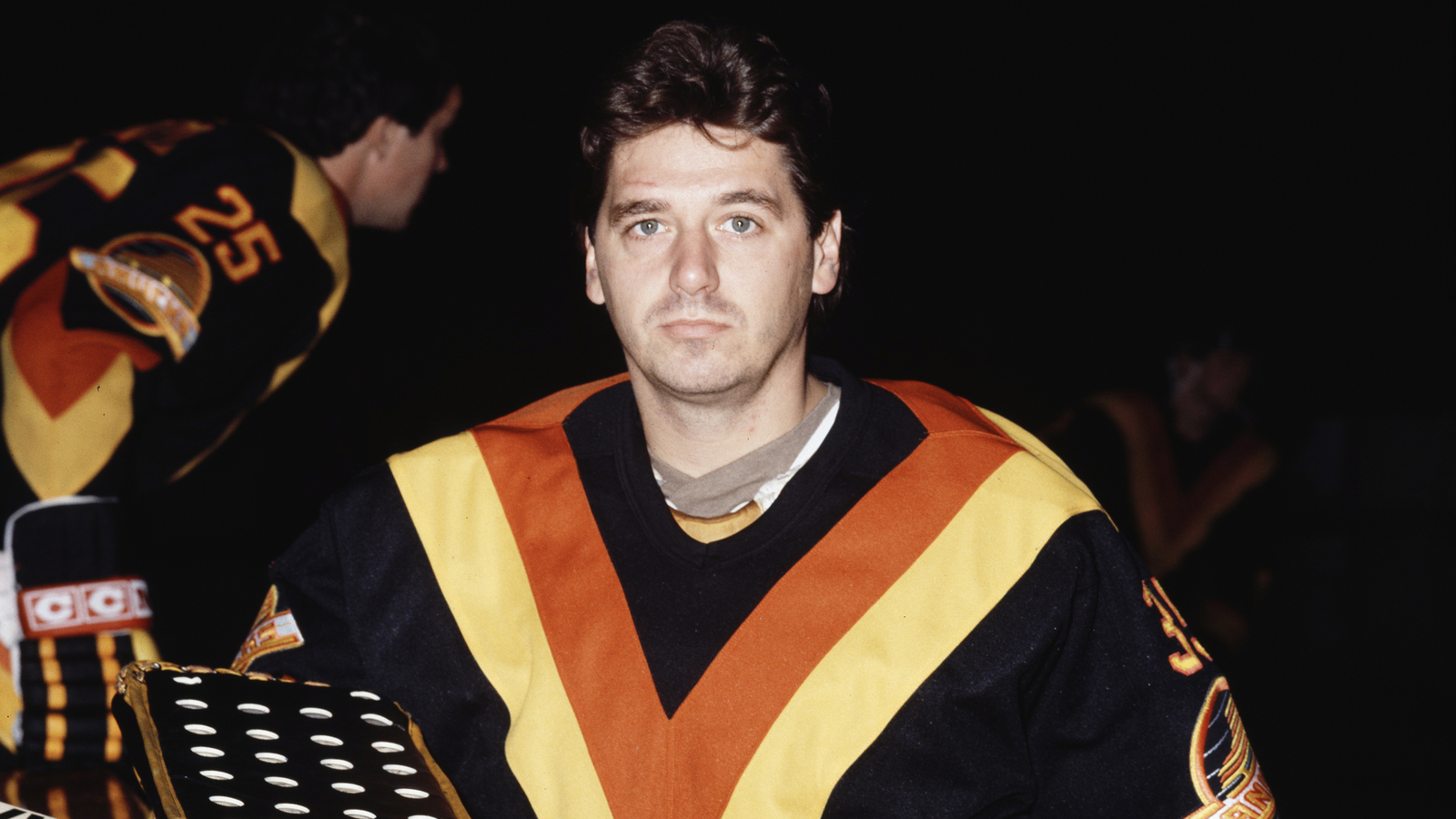
Like the aforementioned North Stars team, this Canucks team was not particularly good, finishing with only 30 wins in an 80-game regular season. Somehow, that was still good enough for a second-place finish in the Smythe Division.
After knocking off the Calgary Flames in the first round, the Canucks got a huge break in Round 2 when they got to face a 63-point Los Angeles Kings team that had somehow upset the Edmonton Oilers. After beating the Kings in five games, they caught yet another break in the Campbell Conference Final, where they got to face the fourth-place team from the Norris Division, the Chicago Blackhawks, who had successfully pulled off a pair of upsets as well.
Basically this entire run was the result of a bunch of mediocre to just plain bad teams beating a bunch of heavy favorites. The upsets came to an end in the Stanley Cup Final, where the Canucks ran into the New York Islanders dynasty and were swept in four straight games, getting outscored by an 18-10 margin in the four games.
More must-reads:
- Tickets for Stanley Cup Final approaching record prices
- Alex Ovechkin bucks superstition, touches trophy
- The 'Captains of the Stanley Cup Finals' quiz
Breaking News
Customize Your Newsletter
 +
+
Get the latest news and rumors, customized to your favorite sports and teams. Emailed daily. Always free!

